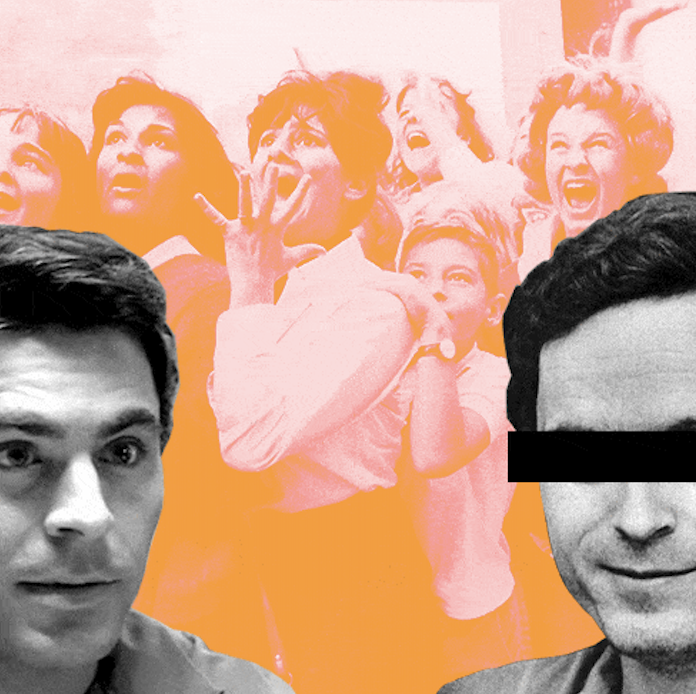Romanticizing Criminals: An Immoral Phenomenon
March 16, 2022
“I can fix him.”
This toxic saying that has spread via TikTok has caused people to overlook the gravity of criminal cases due to the physical attraction they have towards the criminals in question. In today’s culture, people often romanticize criminal cases because the defendant is conventionally attractive. Criminals should be remembered so that society can learn from its mistakes; they should be strictly studied and scrutinized, not glorified.
Hybristophilia is defined as an “attraction to those who commit crimes.” Psychology Today claims that this philia is more common in women than in men, in which women have an urge to reach out to incarcerated criminals. Hybristophilia is categorized as either passive or aggressive. Passive hybristophilia is classified when someone excuses the crimes that the killer committed, and has a strong belief that they can fix the criminal for the better. On the other hand, aggressive hybristophilia is seen by people who are likely to commit horrific acts alongside their criminal counterpart, who is most likely manipulating them.
The issue with hybristophilia, no matter if it is passive or aggressive, is that this perverse admiration for criminals dismisses the fact that lives were destroyed and taken in the process of the criminal’s ruination. By sexualizing these criminals, it disrespects the victims and their loved ones who were impacted.
In the 1970s, Ted Bundy was a serial killer notorious for the abuse, assault, and murder of 36 women. Recently, Netflix released a documentary on Bundy, titled, Extremely Wicked, Shockingly Evil and Vile. This is a dramatized version of Bundy’s life, with Zac Efron—an American heartthrob—cast as Bundy himself. The documentary provides detailed insight into the mind of Bundy, who was a “seemingly normal, attractive man who committed unthinkable atrocities.” However, people pushed this psychological aspect of the documentary to the sidelines when they saw Bundy and Efron’s good looks. By placing the deaths of the victims on the backburner, it minimizes the true brutality of Bundy’s crimes while simply honing in on his physical appearance.
Similarly, the Menendez brothers, convicted killers of a closed 1980s double homicide case, have resurfaced thanks to Gen Z on TikTok. Some people are even referring to the brothers as the “hottest criminals ever.” The brothers were even popular in jail, to the extent that many girls wrote letters to them. In particular, Erik Menendez’s wife, Tammi, was an avid admirer of the brothers. Tammi watched the trial on television, and was allegedly drawn to Erik. She began to write letters to him, which later became phone calls, and eventually turned into an in-person meeting in California, after they confessed their love for one another. In 1999, Tammi and Erik got married in Folsom State Prison, and, in 2005, Tammi wrote the memoir, They Said We’d Never Make It: My Life with Erik Menendez, in which she details their marriage. Tammi explicitly exemplifies the idea of passive hybristophilia, in which she believes Erik can do no wrong.
Fictional characters are just as responsible for this phenomenon of romanticizing criminals. No matter how “fake” the character is, painting criminals as charity cases or good people is still twisted. Joe Goldberg, a serial killer from the Netflix hit series You, is guilty of gaining a large following due to people fussing over Goldberg’s actor Penn Badgley’s charm. Whenever Hollywood casts attractive people to play killers, as seen by Badgley, fans often attach themselves to an idealized version of the criminal, to a point where they become willing to forgive any wrongdoings or faults. The bias people have towards traditionally good-looking men, regardless of the atrocities they have committed, is incorrect, no matter how you want to spin it.
Some people may argue that reserving empathy for criminals is necessary because it can help people learn about preventing such acts. This is valid in the sense that criminals should be used for psychological analysis. But, there is a clear difference between learning from the criminal’s mistakes versus crushing and fawning over them.
Before you go and romanticize a criminal, remember that this person stole precious lives and hurt people in their wake. By glamorizing criminals, you are discrediting the corruptness of these people while disregarding those directly impacted by their crimes. After all, there is a reason why they are behind bars, and not sauntering hand-in-hand with you by your side.
Photo courtesy of Nastia Kobza


Dave potter. • Nov 25, 2023 at 4:14 AM
Absolutely, organised crime leaders should be stripped of glory and the public shown the horrific acts infliicted on the victims and the misery caused by supplying drugs etc.